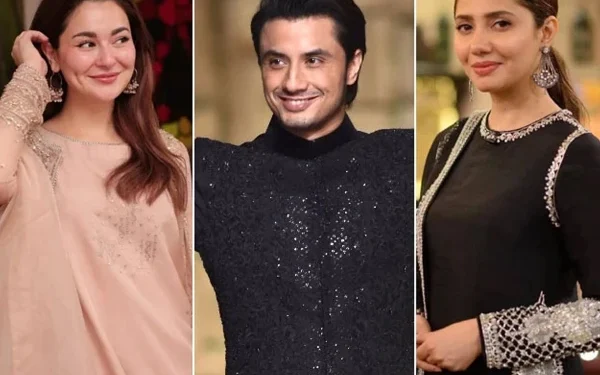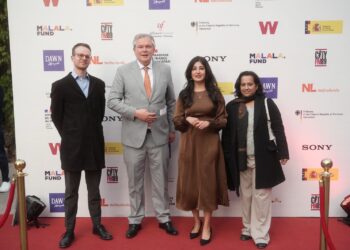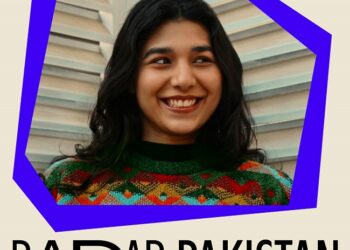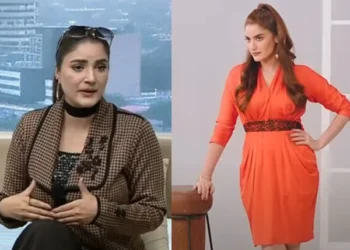Introduction: Growing Digital Divide Between India and Pakistan
In yet another significant escalation in the digital and media cold war between India and Pakistan, several Pakistani celebrities have found their social media accounts blocked for users in India. This move comes as part of India’s broader strategy to limit access to Pakistani content under the pretext of national security and content regulation. It highlights the growing tension and deepening digital divide between the two neighboring nations, which already share a long history of political and diplomatic strain.
Instagram Restricts Access to Pakistani Celebrities’ Profiles
In the latest development, Instagram has acted upon a legal request from the Indian government to restrict access to specific Pakistani accounts. Indian users attempting to visit the profiles of several well-known Pakistani celebrities are now met with the message: “The account is not available in India and has acted on a legal request to restrict it.”
This decision has caused uproar on social media and among fans, particularly those who follow cross-border talent in the fields of film, music, and entertainment.
List of Affected Celebrities
Among the Pakistani public figures whose accounts have been blocked in India are:
- Mahira Khan – Internationally acclaimed actress known for her work in Pakistani dramas and Bollywood movie Raees.
- Hania Aamir – A rising star in the Pakistani entertainment industry with a strong social media presence.
- Sajal Ali – Critically acclaimed actress known for her performances in drama serials and the Bollywood film Mom.
- Ali Zafar – Popular singer, actor, and producer who also gained fame in India for his Bollywood roles.
Many of these artists have a significant fanbase in India, and the decision to restrict their content has sparked disappointment among viewers who appreciate their work regardless of political boundaries.
Previous Incidents: YouTube Channels Also Blocked
This is not the first time India has cracked down on Pakistani digital content. Earlier, the Indian Ministry of Information and Broadcasting blocked access to 16 Pakistani YouTube channels, citing misinformation and national security concerns. Among the banned channels were those belonging to former Pakistani cricketers Shoaib Akhtar, Basit Ali, and Rashid Latif, as well as various independent media creators.
The move, according to Indian authorities, was to prevent the dissemination of propaganda and unverified news. However, Pakistani media and digital rights activists have criticized it as a violation of the principles of freedom of expression.
Indian Government’s Justification: National Security and Content Monitoring
According to sources within Indian regulatory agencies, these actions are part of broader efforts to monitor and control the digital ecosystem. The Indian government has cited national security as the main rationale behind the censorship, claiming that certain content originating from Pakistan spreads misinformation, promotes unrest, or threatens communal harmony.
The government has reportedly directed platforms like Meta (parent company of Facebook and Instagram) and Google to comply with specific takedown requests in accordance with the country’s Information Technology (Intermediary Guidelines and Digital Media Ethics Code) Rules, 2021.
Backlash and Criticism: A Blow to Artistic Freedom
Critics argue that this move is politically motivated and an overreach of censorship powers. In Pakistan, both mainstream media and civil society have condemned the blockage as an assault on artistic freedom and cultural exchange. Several Pakistani celebrities and journalists took to Twitter and Instagram to voice their disappointment.
Digital rights groups like Bytes for All and Digital Rights Foundation in Pakistan have labeled the restrictions as part of a dangerous trend of rising digital nationalism and shrinking online spaces for dialogue.
Impact on Cross-Border Cultural Exchange
The cultural industries of India and Pakistan have long been intertwined, with actors, musicians, and filmmakers from both countries working together despite political differences. Bollywood has historically welcomed Pakistani talent, and Indian audiences have appreciated Pakistani TV dramas for their storytelling and acting depth.
However, such governmental actions threaten to unravel years of soft diplomacy and people-to-people connections built through arts and media. Fans on both sides of the border are lamenting the loss of access to content they value for its artistic merit, not its political origin.
International Reaction and the Role of Tech Companies
There is also growing international concern regarding the compliance of global tech giants with politically charged takedown requests. While platforms like Instagram and YouTube have to follow national laws in the countries where they operate, digital rights advocates insist that they should push back against opaque and potentially discriminatory policies.
Global organizations like Access Now and Article 19 have called for more transparency in how these decisions are made and urged tech companies to conduct human rights impact assessments before enforcing such restrictions.
Pakistani Government’s Response
While the Pakistani government has not yet issued a formal diplomatic protest over this specific incident, it has repeatedly criticized India for using national security as a pretext to silence dissent and censor content. Pakistan’s Ministry of Information and Broadcasting has previously condemned the banning of YouTube channels and called for a fair and balanced digital environment.
Conclusion: Shrinking Space for Cross-Border Dialogue
The blocking of Pakistani celebrities’ social media accounts in India is more than just a tech issue—it is a reflection of the growing hostility in bilateral relations and the shrinking space for cultural dialogue. As digital platforms become battlegrounds for political narratives, ordinary users and artists alike bear the brunt of censorship.
If such actions continue, they may further entrench animosities between the two nations and deprive millions of people of the joy, creativity, and shared heritage that art and culture can provide.

























